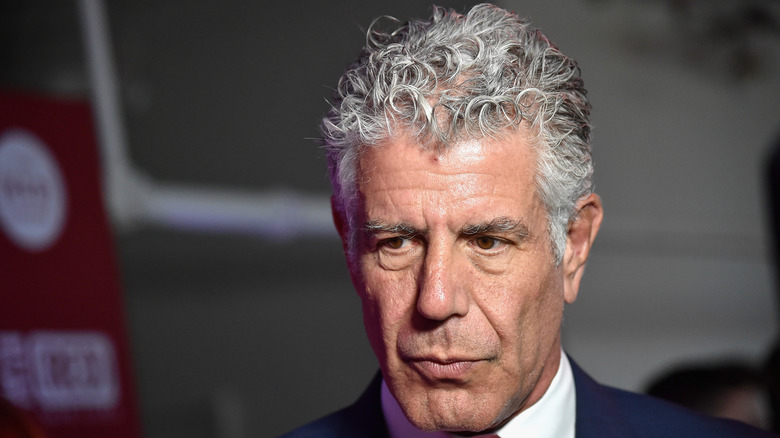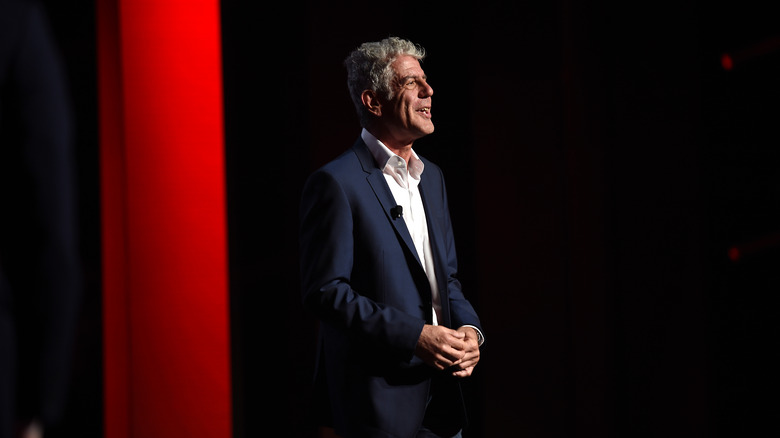How Twitter Really Feels About This 'Unethical' Roadrunner Decision
When suicide ends the life of a celebrated man, the public can seem insistent on blaming the closest woman. That is the critique some have lobbed at "Roadrunner," director Morgan Neville's new documentary about the late Anthony Bourdain.
In addition to the "unsettling" choice to have AI briefly replicate Bourdain's voice, Katie Rife of the AV Club felt the entire film suffered from Morgan Neville's projection of what went wrong for Bourdain, especially in his treatment of Bourdain's girlfriend Asia Argento, who Neville did not interview for the documentary. "... [N]eville stops just short of blaming Asia Argento for Bourdain's death," she wrote in a tweet, "as if it wasn't upsetting for her too when her boyfriend died."
Others similarly expressed that since the film mentioned Argento but only drew on information given by other people, such as former members of the "Parts Unknown" crew, it implicitly assumed Argento was responsible for Bourdain's death. Some, like Rife, assumed Argento simply declined to participate, but Neville has revealed he purposefully opted not to talk to her.
Neville tried to explain in an interview with Esther Zuckerman of Thrillist that he thought interviewing Argento would be confusing: "I just didn't want to get into that game of he said, she said, they said." Instead, we have a game of he said, they said, without the "she" in question.
Should you watch the film?
Learning that Morgan Neville had decided against interviewing the person with whom Bourdain was obsessively in love for the last years of his life raises questions about whether one should even watch the film.
While there is not a consensus, many critics and journalists seem to like the film, but question some of Neville's directorial choices. "Morgan Neville is a great filmmaker, and ROADRUNNER is a good film, but it's a little shocking that he didn't even try to interview Asia Argento, given where this film goes," film critic Bilge Ebiri tweeted. "I just assumed she'd declined to talk to him."
A review in Slate, which charges Neville with doing everything but vocally villainizing Argento, said "It's a testament to the overall success of Neville's portrait of Bourdain that in spite of a flaw that major, Roadrunner is more than worth watching." If one decides that Neville's omission of Argento means they shouldn't watch the film, they are justified. However, those who do want to watch "Roadrunner" while being aware that it deliberately cuts off certain parts of Bourdain's life can feel justified as well. The film delivers a compelling portrait of one of television's most beloved figures, even if that portrait is incomplete.

